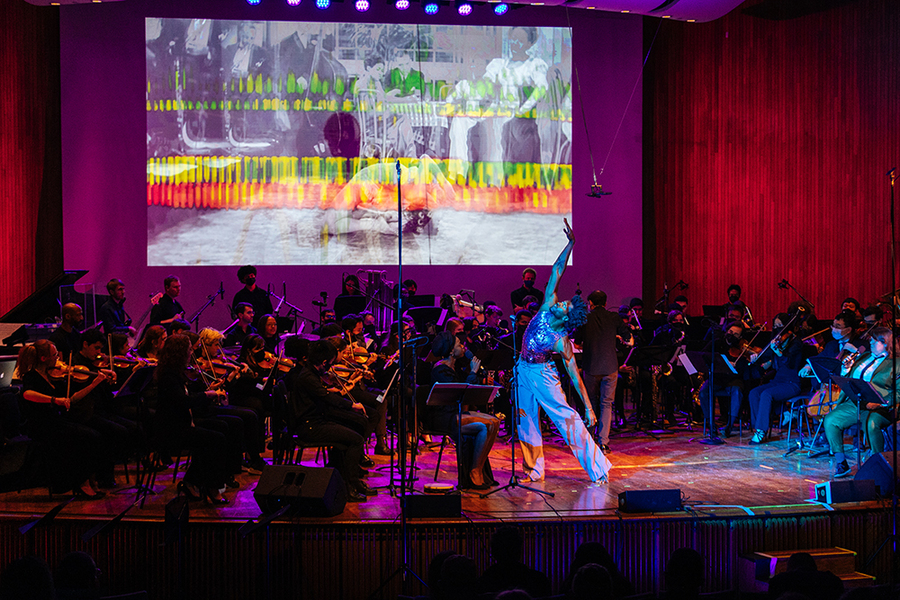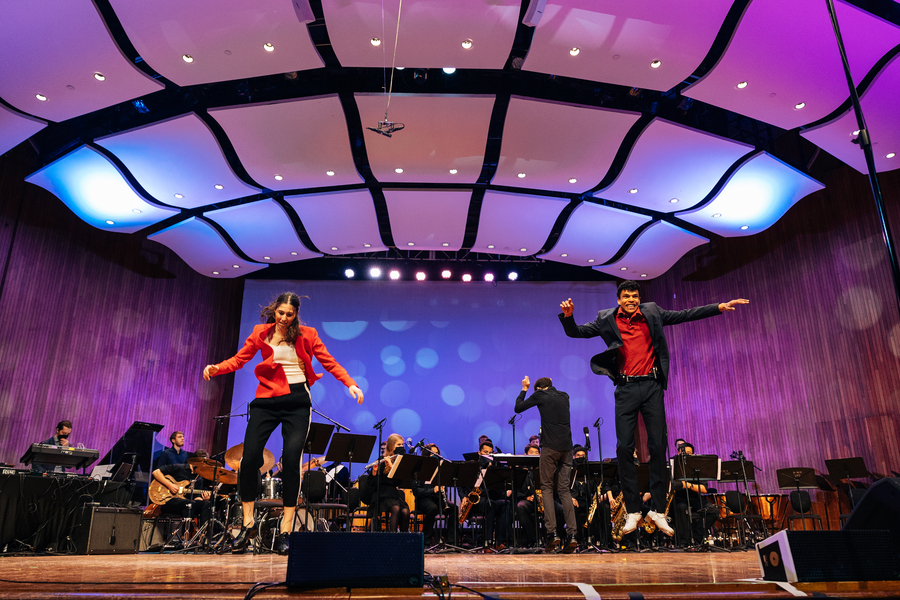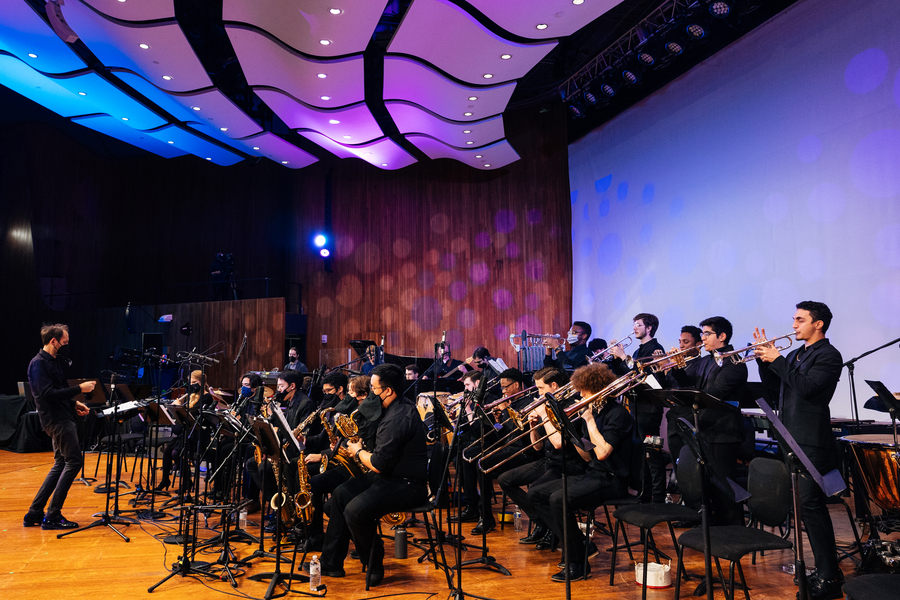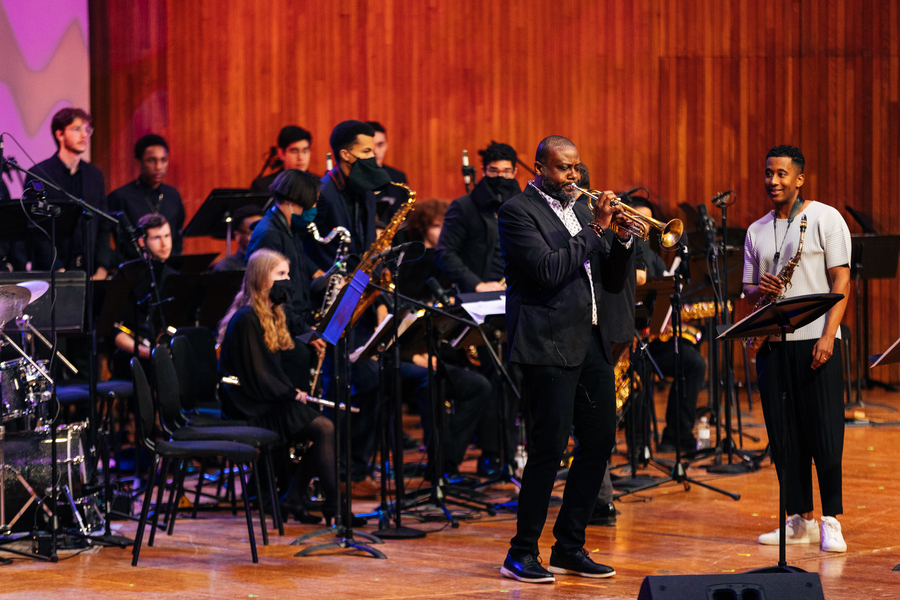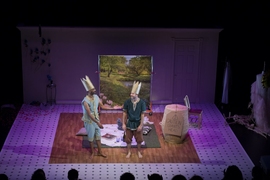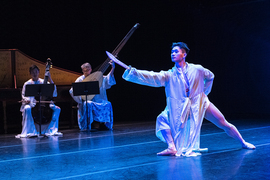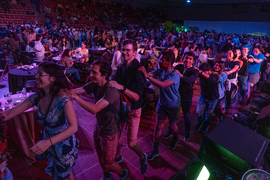It Must Be Now! is an initiative created in response to the racial reckoning of 2020. Multiple events for the MIT community were held throughout 2021 and 2022, leading to an historic multidisciplinary concert in Kresge Auditorium in May 2022, featuring new works by composers Terri Lyne Carrington, Braxton Cook, and Sean Jones, whose creations touched on the themes of racial justice. Some 150 student musicians and guest artists including turntablists, vocalists, spoken word artists, a dancer, and the renowned visual artist and filmmaker Mickalene Thomas also took part.
Frederick Harris Jr., senior lecturer in music at MIT and music director of the MIT Wind Ensemble and MIT Festival Jazz Ensemble, initiated and leads the It Must Be Now! project, which is produced by MIT’s Center for Art, Science and Technology (CAST) and MIT Music and Theater Arts. Here, Harris discusses the project and describes how music can serve to advance social justice.
Q: Why is music such a powerful vehicle for storytelling around topics of social justice?
A: Music goes straight to the heart. It communicates with nuance and visceral impact. It can be overt and ambiguous. It’s an incredible vehicle for freedom of expression, providing performers and listeners the opportunity for reflection, contemplation, joy, and celebration.
It has long been a prime force in telling the stories of the plight of Black Americans and other marginalized populations as well as celebrating their vast contributions. Duke Ellington, Charles Mingus, Max Roach, Nina Simone, Abbey Lincoln, and many other major jazz artists have long addressed racial issues through their music and words. Today, new generations of musicians continue to sing and play their own experiences.
The universality of music moves us — emotionally and physically — in unique ways.
It has the power to expand, challenge, and change the way we see the world.
Q: You created the It Must Be Now! initiative. What has been the impact on campus?
A: Our six community events began deep conversations on topics like the common struggles, inherent truths, and sheer resilience of Black women, and Pangea (an ancient supercontinent) as an Afro-futurism vehicle, probing whether a more geographically linked world might make a difference in human relationships. The ideas and dialogues these events initiated created a rare space for students to explore their critical and creative thinking skills on matters of inequity and social justice.
The It Must Be Now! concert held in May 2022 embodied the themes of these events with the world premieres of compositions by leading musicians Terri Lyne Carrington, Braxton Cook, and Sean Jones. The 150 student musicians featured in the concert were a major part of how these celebrated artists told their stories. I think the experience gave all of us the courage to be better storytellers ourselves, finding our voices to keep the mission of human betterment in our lives.
The multidisciplinary concept of It Must Be Now! — bringing together instrumental ensembles, vocalists, spoken word, turntablists, a dancer, and the renowned visual artist and filmmaker, Mickalene Thomas — gave the MIT community a response to the recent racial reckoning that reflected the magnitude and urgency of the situation. And it demonstrated the emotional power possible when bringing together all of these elements in one setting.
Q: What would you hope to see as next steps for It Must Be Now! and for diversity, equity, and inclusion (DEI) efforts at MIT?
A: Change requires a sustained effort. I think we need platforms for multitudes of voices from MIT and beyond our campus to embrace hard conversations about inequity and racism. And we need to continue to acknowledge and celebrate the lives and cultural contributions of those who have endured injustices historically and those who experience it today.
It Must Be Now! should provide more opportunities for students to expresses themselves and to use the storytelling power of the arts to draw attention to what is and isn’t working on campus. And students and administrative leaders need to be in regular dialog for mapping the future. Bringing DEI leaders to campus from K-12 education, other universities, government, and corporations will also help form a bridge to change.
If we can connect awareness and education to transformative actions and practices, MIT has a greater chance of making a difference in campus culture and being a leader in advancing DEI issues.
After the It Must Be Now! concert, Terri Lyne Carrington noted: “MIT has been in the forefront of moving the world forward in many ways, and it’s exciting to see new possibilities and potential from the Institution on this frontier as well. Change must be now. Justice must be now.”
